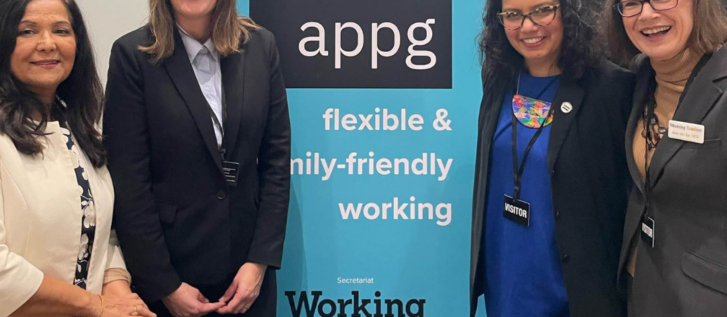
Exploring careers in construction
Construction is a huge industry that spans everything from architecture and house building...read more
With many working dads saying they’ll continue working flexibly after the pandemic passes, what will the office of the future look like?

wereWith so many working dads telling us they intend to continue working flexibly in the future, even after Covid restrictions are eased or ended, hybrid working looks here to stay.
Hybrid working is the new term that’s caught on this year to describe splitting your work between an office and home. Of course home working is just one form of flexible working but it became the most common one this year.
Global design and architecture firm Gensler recently hosted a webinar on what the future office might look like. Key for folk like them who have to design such spaces. Fascinating for working dads wondering if their dream of hybrid working will be the norm. Important for employers who want to retain the best talent by accommodating the desire for hybrid working.
Gensler research showed there is still a strong need for the in-person collaboration and human connection associated with the office. They found a direct correlation between time spent in the office and collaboration. While 21% of respondents to their survey said they could collaborate more easily from home and 34% said they could do so through working in a hybrid model. But the largest proportion – 45% – felt collaboration was easier from the office.
People also felt coaching and mentoring worked better in an office environment, particularly for younger workers. The global research, which had significant and interesting regional and country variations, also showed that people are not in favour of open offices and want some degree of privacy. Only 17% like hotdesking. However, over half of British workers are happy to trade having their own desk for more remote working.
The survey also showed changes in workers’ priorities around amenities. Access to a tech help desk gained in importance this year, possibly due to people’s experience of technical difficulties when working from home.
In a discussion after the findings were presented, Kerri Henderson, Strategy Director of Gensler London, said it was clear hybrid working is here to stay in the UK. “There’s a growing expectation for flexibility and choice to continue,” she said, adding that the purpose of the office needed to be redefined according to employee and business needs.
That meant a shift away from assigned desks and towards collaborative, shared hubs. Innovation and employee performance will be more important than space. For Henderson the big questions for employers concerned workplace density, what the purpose of the workplace was and how often employees would be on site. She reckoned most employers could drop between a quarter and a third of their office space. She also predicted a big move of people away from London to more rural locations. That would be accompanied by an increase in the value of land around major transportation hubs. There could also be more use of blended and ad-hoc work spaces such as in hotels.
Jose Luis Sanchez-Concha, Design Strategy Director of Gensler Costa Rica, predicted conference room design would change. This would be due to more people dialling into meetings. The office would be more like a convention centre, he said – ie it will be a space that is hyperflexible. Collaborative technology would be critical.
Philippe Pare, Managing Director of Gensler Paris, added that meeting rooms would be smaller with more tech because more people at meetings would be remote. There was also a need for more private team spaces, reflecting the dichotomy between people’s desire to return to the office to collaborate and socialise versus their antipathy to open plan spaces.
There was a brief discussion of how to build a corporate culture within a hybrid model. Henderson emphasised the need for “town hall days” to share knowledge. These would need to be more planned and consistent. And they’d be an opportunity to build a sense of corporate culture, she said. The office would be a hub which connected people and helped them to develop, added Sanchez-Concha.
Participants were asked what terms summed up the new approach. They said it was important to focus on purpose, to embrace change, to reinvent and to foreground agility, empathy and trust. Trust implied asking employees what they need.
Pare ended by saying that employees had spent months of working at home with good facilities and tech. Now they need the office to be “better than home”.

New flexible working regulations came in over the weekend. But what do they mean and how does the process work for making a request for flexible... read more

HR expert Alan Price outlines the legislative changes coming up in April that will help working families. read more

A new parliamentary group aims to push the conversation about flexible working further. read more

Will we all be working in the metaverse in the future, what are the implications and are our children equipped for a more virtual world of work? read more